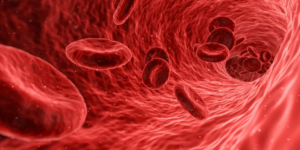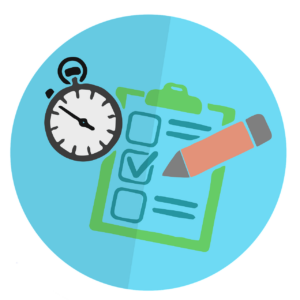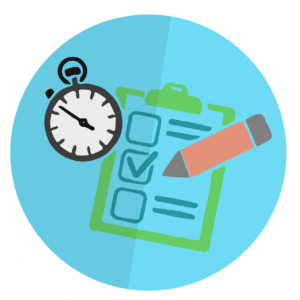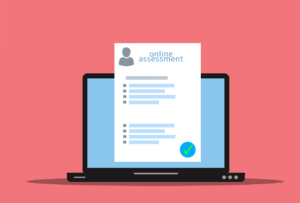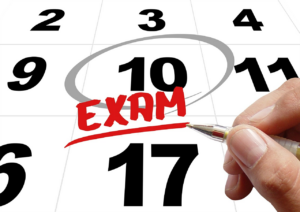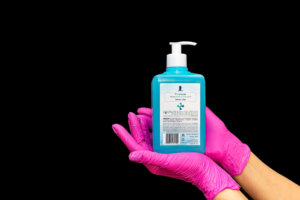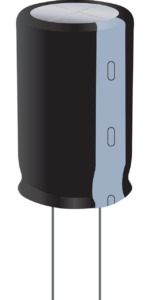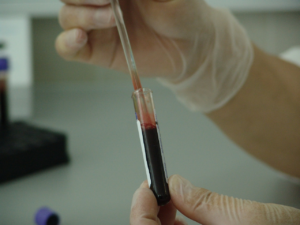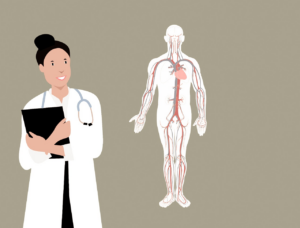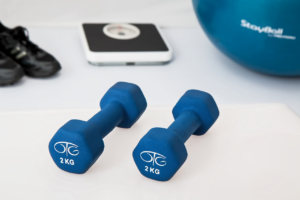Are you feeling nervous about the Pearson Vue NCLEX exam? Don’t worry, you’re not alone! Many nursing students and graduates feel the same way. But with some preparation and knowledge of what to expect on test day, you can increase your chances of success.
In this article, we’ll guide you through what to expect on the Pearson Vue NCLEX exam day, from the purpose of the exam to the logistics of test day. We’ll also cover the content of the exam and give you some tips on how to best prepare for it.
So take a deep breath, relax, and let’s get started!
Key Takeaways
- The purpose of the Pearson Vue NCLEX exam is to ensure nurses have necessary knowledge and skills for safe patient care and passing the exam is essential to becoming a licensed nurse.
- The exam is scored using computerized adaptive testing (CAT) method and the difficulty level of questions adjusts based on test-taker’s performance.
- The exam content includes nursing process and patient care, pharmacology, and health promotion and maintenance. Test-takers should develop answering strategies for each category of questions.
- On test day, test-takers should be prepared for the computerized adaptive testing (CAT) method, multiple-choice questions of various types, and categories of questions related to nursing process and patient care, pharmacology, and health promotion and maintenance.
Understanding the Purpose of the NCLEX Exam
So, you’re gearing up for the Pearson Vue NCLEX exam and wondering why it’s even necessary? Well, let’s talk about the purpose of this exam.
The NCLEX exam is an important test that every aspiring nurse must take to become licensed. Its main purpose is to ensure that the nurse has the necessary knowledge and skills to provide safe and effective patient care. Passing the NCLEX exam is required by all states in the United States and in most Canadian provinces.
The NCLEX exam scoring system is based on a computerized adaptive testing (CAT) method, which means that the difficulty level of the questions will increase or decrease depending on your performance. This method ensures that the exam is tailored to your individual level of competence.
The questions on the NCLEX exam are designed to test your critical thinking and decision-making abilities, as well as your knowledge of nursing concepts and principles. So, it’s important to take the exam seriously and prepare adequately to ensure you pass on your first attempt.
NCLEX Exam Overview
When you arrive at the testing center, it’s important to have a clear understanding of the NCLEX exam overview to feel prepared and confident.
The NCLEX exam format consists of multiple-choice questions that are designed to test your knowledge and critical thinking skills. There are two types of questions: the first type is a standalone question, and the second type is a question that is linked to a scenario.
The exam is computer-adaptive, which means the computer adjusts the difficulty level of the questions based on your performance. The passing score for the NCLEX exam is determined by the National Council of State Boards of Nursing (NCSBN).
It’s important to note that the passing score is not a fixed number, but rather a range that changes based on the difficulty level of the questions.
To help you prepare for the NCLEX exam, here are two sub-lists to evoke an emotional response in you:
-
Things that may make you anxious:
-
The pressure of passing the exam to become a licensed nurse
-
The fear of not being able to answer the questions correctly
-
Things that may make you feel confident:
-
The knowledge and skills you’ve gained from your nursing education
-
The practice exams and study materials you’ve used to prepare for the exam
Remember, the NCLEX exam is designed to test your ability to think critically and make safe decisions as a nurse. By understanding the NCLEX exam format and knowing what to expect on test day, you can feel more confident and prepared to pass the exam and start your career as a licensed nurse.
NCLEX Exam Content
When it comes to the NCLEX exam content, you’ll encounter questions that fall under several categories.
These include nursing process and patient care, pharmacology, and health promotion and maintenance.
Each category tests your knowledge and skills in specific areas of nursing, so it’s important to be familiar with them before taking the exam.
Categories of Questions
As you progress through the Pearson Vue NCLEX exam, you’ll encounter various categories of questions that will challenge your knowledge and skills in different ways. To prepare for these questions, it’s important to understand the different types of questions and develop answering strategies that work best for each category.
Here are some categories of questions you can expect to see on the NCLEX exam:
-
Multiple choice: These questions will present you with a stem and several answer options. One of the answer options will be the correct answer, while the others will be distractors. It’s important to read the stem carefully and eliminate any answer options that are obviously incorrect.
-
Select all that apply: These questions will present you with a stem and several answer options. More than one answer option may be correct, so it’s important to carefully consider each option before selecting your answer.
-
Fill in the blank: These questions will present you with an incomplete sentence or phrase and ask you to fill in the missing information. It’s important to read the stem carefully and ensure that your answer is grammatically correct.
-
Ordered response: These questions will present you with a list of steps or events and ask you to put them in the correct order. It’s important to carefully consider each step or event and think about how they relate to each other before selecting your answer.
By familiarizing yourself with the different types of questions and developing answering strategies for each category, you’ll be better equipped to tackle the NCLEX exam and pass with flying colors.
Nursing Process and Patient Care
You’ll need to understand the nursing process and patient care in order to be successful on the NCLEX. This means being familiar with nursing interventions, patient assessment, clinical reasoning, and prioritization. These concepts are essential to providing safe and effective patient care, and they are also key components of the NCLEX exam.
To help you prepare for the exam, here is a table outlining some of the key concepts related to nursing process and patient care:
| Concept | Definition |
|---|---|
| Nursing interventions | Actions taken by the nurse to promote health, prevent illness, or manage disease |
| Patient assessment | The process of gathering information about a patient’s health status |
| Clinical reasoning | The process of analyzing patient data to make clinical decisions |
| Prioritization | The process of determining which patient needs are most urgent and require immediate attention |
By understanding these concepts and how they relate to patient care, you’ll be better equipped to answer questions on the NCLEX exam. Remember to take your time and think critically about each question, using your knowledge of nursing process and patient care to guide your answers.
Pharmacology
Now that you’ve covered the Nursing Process and Patient Care in the previous subtopic, it’s time to move on to Pharmacology for the Pearson Vue NCLEX exam.
In this section, you’ll be tested on your knowledge of medications and their effects on the body. As a nurse, it’s crucial to understand the drugs you administer to your patients, as well as their potential interactions and side effects.
To help you prepare for this section of the exam, here are three key points to keep in mind when studying pharmacology:
-
Drug interactions: It’s important to know how different medications can interact with each other. Some drugs can increase or decrease the effects of other medications, while others can cause harmful side effects when taken together. Make sure you understand the potential interactions between the drugs you’ll be administering to your patients.
-
Side effects: All medications have the potential to cause side effects, and it’s important to know what these are. Some side effects may be minor, while others can be severe or even life-threatening. Make sure you’re familiar with the common side effects of the drugs you’ll be administering, as well as the signs and symptoms of more serious reactions.
-
Patient education: As a nurse, you’ll often be responsible for educating your patients about their medications. This may include explaining how the medication works, potential side effects, and how to take the medication properly. Make sure you’re able to communicate this information clearly and effectively to your patients, and that you’re able to answer any questions they may have.
Health Promotion and Maintenance
Get ready to learn about how to promote and maintain your own health with these key tips. As a nurse, it is important to not only educate your patients on how to take care of their health, but to also practice what you preach. Health promotion strategies can range from simple lifestyle changes to more complex medical interventions. By incorporating these strategies into your daily routine, you can reduce your risk of developing common health conditions such as hypertension, diabetes, and obesity.
To help you get started, here is a table outlining some key health promotion strategies and their benefits:
| Health Promotion Strategy | Benefits |
|---|---|
| Exercise regularly | Improves cardiovascular health, reduces risk of chronic diseases |
| Eat a balanced diet | Provides essential nutrients, reduces risk of chronic diseases |
| Get enough sleep | Improves mental health, strengthens immune system |
| Practice stress-reducing activities | Promotes relaxation, reduces risk of chronic diseases |
By implementing these strategies, you can take control of your health and reduce your risk of developing common health conditions. Remember, as a nurse, you play a vital role in promoting health and wellness not only for your patients, but for yourself as well.
Preparing for the NCLEX Exam
Before taking the NCLEX exam, it’s important to prepare yourself both mentally and physically. You can start by using effective study strategies to help you retain information better.
For instance, try using mnemonic devices and flashcards to help you remember important concepts and terms. You can also join a study group or hire a tutor to guide you through difficult topics.
Time management is also crucial when preparing for the NCLEX exam. Make sure to create a study schedule that fits your lifestyle and allows you to study consistently. You can break down your study sessions into manageable chunks and take frequent breaks to avoid burnout.
Additionally, make sure to take care of your physical health by eating well, exercising, and getting enough rest. By taking care of yourself and using effective study strategies, you can feel confident and prepared on test day.
Test Day Logistics
On test day, make sure you bring your identification as well as the authorization to test (ATT) letter. Personal items, such as electronic devices, are not allowed in the testing area. When checking in, be prepared to have your photo taken and provide your fingerprints.
Once you’ve checked in, you’ll begin the exam on the computer in a private testing cubicle.
What to Bring
Make sure you’ve got all the necessary items to bring with you for a smooth and stress-free Pearson Vue NCLEX exam day. Here’s a list of essential items to bring with you:
-
Government-issued ID with your name, signature, and photo. This can be a driver’s license, passport, or state ID.
-
Authorization to Test (ATT) letter from Pearson Vue.
-
A face mask or covering to comply with COVID-19 safety protocols.
-
Comfortable clothing and shoes. You’ll be sitting for an extended period, so make sure you’re comfortable.
In addition to these essential items, here are some exam day tips to keep in mind:
-
Arrive at the testing center at least 30 minutes before your scheduled exam time. This will give you enough time to check-in, store your belongings, and settle in before the exam begins.
-
Lastly, try to relax and remain calm throughout the exam. Taking deep breaths and positive self-talk can help you stay focused and confident during the test.
What Not to Bring
Don’t bring any prohibited items to the testing center, such as electronic devices or food and drinks. Pearson Vue has strict test center rules that prohibit test-takers from bringing any unauthorized items into the testing room. This includes but is not limited to, cell phones, smartwatches, tablets, laptops, any type of recording devices, and all forms of food and drinks. If you bring any of these items, they will be confiscated, and you may not be allowed to take the exam.
To ensure that you don’t bring any prohibited items to the testing center, it’s important to review the list of allowed and prohibited items before test day. Pearson Vue provides a list of permitted and prohibited items on their website, which you can access by logging into your account. Additionally, you should arrive at the testing center early to allow time for check-in and security procedures. By following these guidelines, you can ensure that your test day runs smoothly and that you don’t encounter any issues with prohibited items.
| Allowed Items | Prohibited Items |
|---|---|
| Government-issued ID | Electronic devices |
| Credit card | Food and drinks |
| Locker key | Recording devices |
| Tissues | Watches |
| Earplugs | Hats |
Remember, Pearson Vue has strict test center rules, and failure to comply with these rules may result in not being allowed to take the exam. So, make sure you review the list of permitted and prohibited items, and don’t bring any unauthorized items to the testing center.
Checking In and Starting the Exam
Once you arrive at the testing center, it’s important to follow the check-in process and prepare yourself mentally for the Pearson Vue NCLEX Exam. Here’s what you can expect during the check-in process:
- You’ll be asked to provide two forms of identification, one of which must be government-issued and have a photo.
- You’ll be asked to empty your pockets and store all personal belongings in a locker provided by the testing center.
- You’ll be given a wristband with your name and a locker key to access your belongings during breaks.
- You’ll be escorted to your testing station and given instructions on how to begin the exam.
It’s important to remember that the test-taking environment can be stressful, but taking a deep breath and mentally preparing yourself before beginning the exam can help alleviate some of that stress. Once you begin the exam, you’ll have a certain amount of time to complete each section, but it’s important to not rush through the questions and take your time to ensure accuracy. Remember, staying calm and focused will help you perform your best on the Pearson Vue NCLEX Exam.
After the NCLEX Exam
After completing the NCLEX exam, you might feel a mix of emotions that range from relief to anxiety about the results.
It’s important to remember that the NCLEX is a pass/fail exam, so there’s no score to report. Instead, you’ll receive a pass or fail notification within 48 hours of taking the exam, although some states may take longer.
If you do pass the exam, congratulations! You’ll be able to start your career as a registered nurse.
However, if you don’t pass, don’t give up hope. You’ll receive a detailed report of your performance, including areas where you did well and areas where you need improvement. Use this report to guide your study plan and try again.
Remember, many successful nurses have had to retake the NCLEX, and you can too. Keep studying and practicing, and you’ll pass the NCLEX exam.
Frequently Asked Questions
How long does it take to receive NCLEX exam results?
Once you’ve taken the NCLEX exam, you can expect to receive your results within 2-6 weeks.
NCLEX exam score reporting is done through the National Council of State Boards of Nursing (NCSBN), who will send your results to the board of nursing in the state where you applied for licensure.
It’s important to note that NCLEX exam result validity varies by state, so be sure to check with your state board of nursing to find out how long your results will remain valid. In some states, your results may be valid for up to 3 years, while in others they may only be valid for 1 year.
Regardless of the validity period, it’s important to keep your results safe and secure, as they are a crucial part of the licensure process.
Can you retake the NCLEX exam if you fail?
If you fail the NCLEX exam, you can retake it. You can take it as many times as you need until you pass. However, you’ll have to pay the exam fee each time you take it.
The good news is that some states offer an exam fee refund if you fail the NCLEX the first time. Be sure to check with your state board of nursing to see if this applies to you.
Are there any specific clothing or personal item restrictions for test day?
When it comes to test day, it’s important to dress appropriately and avoid bringing any prohibited items with you.
Appropriate attire means dressing in comfortable clothing that doesn’t distract you or others during the exam. However, some testing centers may have specific dress codes, so it’s important to check beforehand.
As for prohibited items, you should avoid bringing anything that could potentially give you an unfair advantage, such as notes or electronic devices. Other prohibited items may include food, drinks, and backpacks.
It’s best to check with the testing center beforehand to ensure you’re not bringing anything that could hinder your chances of passing the exam.
Can you bring food and drinks into the testing center?
You’ll want to be comfortable on test day, so it’s important to know what you can bring into the testing center.
Food and drink are allowed, but you’ll need to keep them in a clear plastic bag provided by the testing center.
You can also bring a sweater or jacket in case the room is too cold. Just remember that you won’t be allowed to access your food or drink during the exam, so make sure to eat and drink before you arrive.
Overall, bringing snacks and drinks is a good idea for test day comfort, but make sure to follow the rules set by the testing center.
What happens if technical difficulties arise during the exam?
If technical difficulties arise during your exam, don’t panic. Technical support is available to help you resolve any issues that may arise.
If the issue cannot be resolved, Pearson Vue has a backup plan in place. You may be asked to reschedule your exam for another day or time.
It’s important to remain calm and focused throughout the process, and remember that Pearson Vue is there to help you succeed.
Conclusion
Congratulations! You’ve made it to the end of this article on the Pearson Vue NCLEX exam. By now, you have a good understanding of what to expect on test day, including the purpose of the exam, its content, and how to prepare for it.
Remember, the NCLEX exam is not just a test of your knowledge, but also a test of your critical thinking skills. So, make sure to approach each question carefully and critically analyze the information provided.
Trust your instincts, take your time, and stay focused. With the right mindset and preparation, you can pass the NCLEX exam and take the next step in your career as a nurse. Good luck!














